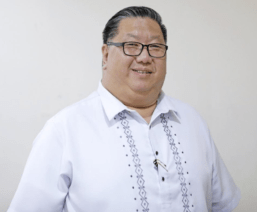FRESH VIEWPOINTS: A NEW PERSPECTIVE
By Brian James Lu

In his State of the Nation Address (SONA), President Ferdinand R. Marcos Jr. urged Congress to amend Republic Act (RA) 11524, or the Coconut Farmers and Industry Trust Fund (CFITF), to truly address the pressing needs of coconut farmers. He stated: “To fully boost the coconut industry, we will ask Congress to change the Coconut Farmers and Industry Trust Fund Act so that it better meets the needs of our farmers.”
For decades, coconut farmers have endured poverty despite their vital role in sustaining one of the country’s most important agricultural industries. That is why they welcomed the president’s call with cautious hope.
The Confederation of Coconut Farmers Association (Confed) stressed that any amendment to the CFITF must not be superficial but truly meaningful—recognizing the rightful ownership of farmers over the coco levy funds and assets. Farmers see this as a chance to finally correct a long history of injustice and ensure that the billions collected in their name will directly uplift their lives, provide livelihood opportunities, and strengthen the future of the coconut industry.
The CFITF represents the coco levy funds collected from farmers during the Marcos Sr. administration, amounting to about PHP150 billion. For decades, the Confederation of Coconut Farmers’ Organizations (CONFED) has led the struggle to ensure that these funds are used meaningfully and directly for the benefit of coconut farmers.
CONFED is the largest and most unified coalition of coconut farmers’ organizations in the Philippines. It brings together the Philippine Association of Small Coconut Farmers’ Organizations (PASCFO), the Pambansang Koalisyon ng mga Samahang Magsasaka at Manggagawa sa Niyugan (PKSMMN), the Coconut Producers’ Federation (COCOFED), and their allied organizations—representing more than 95 percent of the organized coconut farmer sector nationwide.
In June 2015, coconut farmers won a crucial victory when the Supreme Court granted CONFED’s petition to stop the twin executive orders of then President Benigno Aquino III, which producers denounced as unjust and anti-farmer. As Charlie Avila, Confed’s executive director, stressed, the coco levy assets are not private property but public trust funds—money taken from farmers through taxation and meant only to uplift their lives. This ruling reaffirmed that the funds must never be misused but managed solely for the welfare of coconut farmers and the development of the coconut industry.
In August 2017, the Supreme Court lifted the TRO and came out with a powerful decision reconveying to the government billions of pesos of coco levy funds as public trust funds for the benefit of all the coconut farmers and the development of the coconut industry. While CONFED welcomed the Supreme Court’s decision, it lamented the absence of an administrative mechanism to guarantee that the funds would be managed prudently and in accordance with the law’s intent.
CONFED has strongly criticized RA 11524, or the CFITF, arguing that instead of empowering farmers, it centralizes control in the government—particularly the Department of Finance. The law weakens the Philippine Coconut Authority (PCA) by reducing it to just one of 15 implementing agencies, blurs accountability, and, most critically, shuts out coconut farmers’ organizations from any real participation in managing the very funds collected from them.
In response to President Marcos Jr.’s call to amend RA 11524, CONFED, together with the Philippine Reconstruction Reform Movement (PRRM), convened a broad meeting of coconut stakeholders on Aug. 6. The gathering, which they called “Tinig ng Magniniyog,” brought together farmer leaders from across the country, coconut industry players, PCA officials and staff, as well as attachés from the European Union and Indonesia. The discussions centered on the time-sensitive issues confronting the coconut industry and its vital role in securing both farmers’ livelihoods and the nation’s economy.
They also welcome President Marcos Jr.’s goal of planting 100 million coconut trees to meet the rising global demand for coconut products. For farmers, this commitment is more than just a numbers target—it represents renewed hope for revitalizing aging coconut farms, creating jobs in rural areas, and ensuring the long-term sustainability of the industry. By expanding production capacity, the Philippines can strengthen its position in the world market while uplifting millions of smallholder coconut farmers whose livelihoods depend on the industry. Farmers believe that if this initiative is carried out with their full participation and support, it can pave the way for inclusive growth and a stronger, more competitive coconut sector.
The Tinig ng Magniniyog were one in their demands that coconut farmers be recognized as the rightful owners of the coco levy funds and assets, with the government acting only as trustee and the farmers, through their organizations, as true beneficial owners. This must be matched with guaranteed representation of farmers’ organizations in all decision-making bodies and fund management structures. They also call for a reorientation of investments toward direct support for farmer-led enterprises, local processing, credit access, capacity building, and rural industrialization—rather than limiting funds to so-called “safe” returns from government bonds and securities.
Equally important is the revival of the original tripartite vision of the coco levy: production support through the Philippine Coconut Authority (PCA), processing and trading through farmer-partnered enterprises under the Coconut Industry Investment Fund–Oil Mills Group (CIIF-OMG), and accessible credit through a coconut farmers’ bank and agri-finance agencies. Achieving this requires institutional reforms that ensure transparency, accountability, and strong coordination between government and farmers’ organizations at both national and local levels—so that the Coconut Farmers and Industry Development Plan is implemented as a genuine partnership, with co-ownership and control reaching down to the barangay level.
Needless to say, the struggle over the coco levy funds is more than a battle for resources—it is a fight for justice, dignity, and the future of millions of coconut farmers who have long been denied their rightful share. By amending RA 11524, as proposed by Marcos, to ensure genuine farmer ownership, representation, and participation, the government can finally transform decades of injustice into a legacy of empowerment. With unity among farmers, support from industry partners, and a shared vision for sustainable development, the coconut sector can rise again—not only as a backbone of the economy but as a source of hope and prosperity for farming families across the nation.



